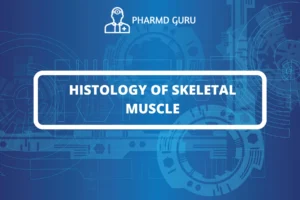Physiological Properties of Skeletal Muscle:
Skeletal muscles possess several unique properties that enable them to perform their essential functions of generating force and producing movement in the body. These properties are fundamental to the muscular system’s function and overall human locomotion. Here are some key physiological properties of skeletal muscle:
SCROLL DOWN TO THE BOTTOM OF THE PAGE FOR ACTUAL NOTES
- Excitability (Irritability): Skeletal muscles have the ability to respond to nerve impulses. When stimulated by a nerve signal at the neuromuscular junction, muscle fibers undergo an electrical change, leading to contraction.
- Contractility: Skeletal muscles can shorten (contract) in response to a nerve signal. This property allows muscles to generate force and create movement in the body.
- Extensibility: Skeletal muscles can be stretched and lengthened without damage. This property is essential for the flexibility and range of motion of our joints and muscles.
- Elasticity: After being stretched, skeletal muscles can return to their original resting length due to their elastic properties. This property helps maintain posture and stability.
- Tension Development: Skeletal muscles can generate tension or force, enabling them to lift objects, support body weight, and perform various physical activities.
- Sarcomere Structure: The sarcomere is the basic contractile unit of a muscle fiber. It consists of overlapping thick (myosin) and thin (actin) filaments. The arrangement of these filaments is responsible for the striated appearance of skeletal muscle.
- Motor Unit Recruitment: Skeletal muscles contain multiple motor units, each consisting of a motor neuron and the muscle fibers it innervates. The recruitment of motor units allows for varying levels of force production depending on the required task.
- Muscle Fiber Types: Skeletal muscles contain different types of muscle fibers, such as slow-twitch (Type I) and fast-twitch (Type II) fibers. Slow-twitch fibers are more fatigue-resistant and are well-suited for endurance activities, while fast-twitch fibers are responsible for powerful, rapid movements but fatigue more quickly.
Disorders of Skeletal Muscle:
Several disorders can affect the physiological properties and function of skeletal muscles. Some common muscle disorders include:
- Muscle Strain: A muscle strain, also known as a pulled muscle, occurs when muscle fibers are stretched or torn. It can result from overuse, improper lifting techniques, or sudden movements.
- Muscle Cramps: Muscle cramps are sudden, involuntary contractions of one or more muscles. They can be caused by dehydration, electrolyte imbalances, or muscle fatigue.
- Muscle Dystrophy: Muscle dystrophy refers to a group of genetic disorders characterized by progressive muscle weakness and degeneration. Duchenne muscular dystrophy is one of the most well-known forms.
- Myositis: Myositis is inflammation of the muscle tissue, which can lead to muscle weakness and pain. It can be caused by infections, autoimmune disorders, or medications.
- Myopathies: Myopathies are a group of muscle diseases that can affect muscle structure and function, leading to weakness and impaired mobility.
- Muscle Spasms: Muscle spasms are sudden, involuntary muscle contractions that can be painful and may result from dehydration, electrolyte imbalances, or nerve irritations.
- Myasthenia Gravis: Myasthenia gravis is an autoimmune disorder that affects the neuromuscular junction, leading to muscle weakness and fatigue.
- Rhabdomyolysis: Rhabdomyolysis is a severe condition in which damaged skeletal muscle fibers release their contents into the bloodstream, leading to kidney damage and other complications.
Proper diagnosis, treatment, and management of these muscle disorders are essential for maintaining muscle function and overall physical well-being. Physical therapy, medications, and lifestyle modifications are some of the approaches used to address these conditions.
Conclusion:
The physiological properties of skeletal muscles, including excitability, contractility, extensibility, and elasticity, are crucial for the human body’s movement and function. However, various disorders can affect muscle health and performance, emphasizing the importance of understanding and caring for our muscular system to maintain optimal physical well-being.
ACTUAL NOTES
PRO VERSION:




